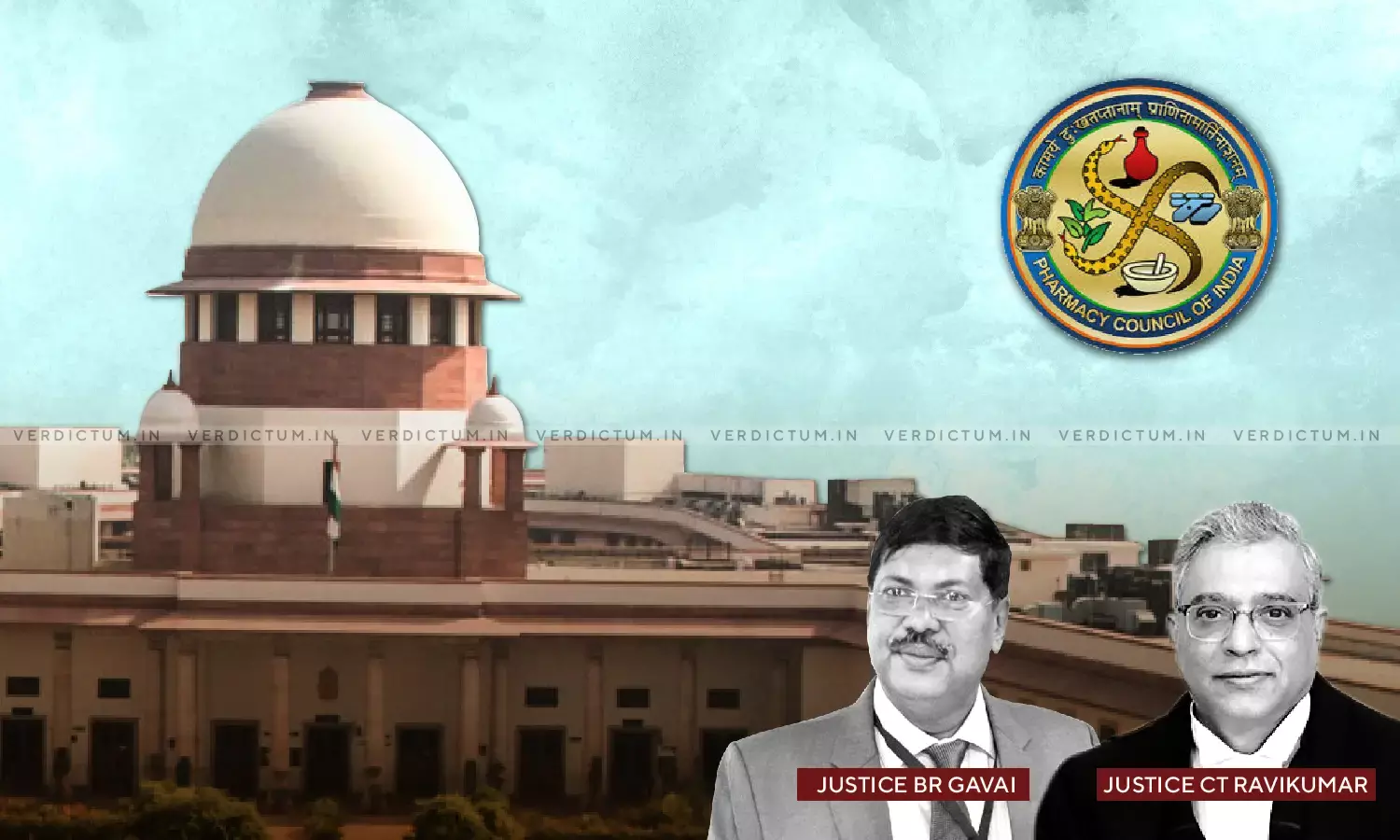Resolutions Of Pharmacy Council Are Executive Instructions, Cannot Impose Restrictions On Right To Establish Educational Institutions – SC

While striking down the resolutions/communications of the Central Council of the Pharmacy Council of India (PCI) which had restricted to establish pharmacy colleges in the country for a period of five years, the Supreme Court observed that such resolutions/communications which are in the nature of executive instructions cannot impose restrictions on the fundamental right to establish educational institutions under Article 19(1)(g) of the Constitution.
The Bench of Justice BR Gavai and Justice PS Narasimha was hearing a plea of the institutions which had filed a batch of appeals challenging the communications of the PCI through which it had restricted the establishment of pharmacy colleges in India for a period of five years.
Senior Counsel Maninder Singh appeared for the Appellant – PCI while Senior Counsels Rakesh Dwivedi, Vinay Navare, Amit Pai, Sanjay Sharawat, Siddharth R. Gupta, and Shivam Singh appeared for the Respondents before the Apex Court.
The issue which was dealt with by the Court was –
- Whether the moratorium, as imposed by the Central Council of the AppellantPCI, could have been imposed by the Resolution, which is in the nature of an executive instruction of the Central Council.
The Bench placed reliance on the judgment T.M.A. Pai Foundation and others vs. State of Karnataka and others where the Constitution Bench of the Supreme Court held that in view of Article 19(1)(g) and Article 26 of the Constitution of India, all citizens and religious denominations are conferred with a right to establish and maintain educational institutions.
Further, the Court placed reliance on Islamic Academy of Education and another vs. State of Karnataka and others, where it was held that the State would be entitled to impose restrictions and make regulations both in terms of Article 19(1)(g) and Article 30 of the Constitution of India for maintaining excellence in the standard of education. It has been held that regulatory measures are necessary for ensuring orderly, efficient, and sound administration.
The Court also referred to P.A. Inamdar and others vs. State of Maharashtra and others, where it was reiterated that the right right to impart education is a fundamental right under Article 19(1)(g) and, therefore, subject to control by clause (6) of Article 19.
The Court then added, "It is thus clear that though there is a fundamental right to establish educational institutions, the same can be subject to reasonable restrictions, which are found necessary in the general public interest. However, the question that requires to be answered is as to whether the same can be done by executive instructions or not."
The Court also held that a citizen cannot be deprived of the right except in accordance with the law. It was further also reiterated that the requirement of law for the purpose of clause (6) of Article 19 of the Constitution can by no stretch of imagination be achieved by issuing a circular or a policy decision in terms of Article 162 of the Constitution or otherwise. It has been held that such a law must be one enacted by the legislature.
The Court also reiterated that an Executive cannot do something to infringe the rights of the citizens by executive action, though the State Legislature has legislative competence to legislate on the subject.
The Bench thus held that the right to establish an educational institution is a fundamental right under Article 19(1)(g) of the Constitution and reasonable restrictions can be imposed only by law and not by an executive instruction.
The Court further observed, "Since we have held that the Resolutions/communications dated 17th July 2019 and 9th September 2019 of the Central Council of the appellantPCI, which are in the nature of executive instructions, could not impose restrictions on the fundamental right to establish educational institutions under Article 19(1)(g) of the Constitution of India, we do not find it necessary to consider the submissions advanced on other issues. We find that the Resolutions/communications dated 17th July 2019 and 9th September 2019 of the Central Council of the appellantPCI are liable to be struck down on this short ground."
The Court furthermore emphasized the need to impose certain restrictions so as to prevent mushrooming growth of pharmacy colleges. However, the Bench also noted that it is to be done it has to be done strictly in accordance with the law. If and when such restrictions are imposed by an Authority competent to do so, the validity of the same can always be scrutinized on the touchstone of law.
Accordingly, the Court dismissed the appeals.
Cause Title - Pharmacy Council of India v. Rajeev College of Pharmacy & Ors.
Click here to read/download the Judgment

